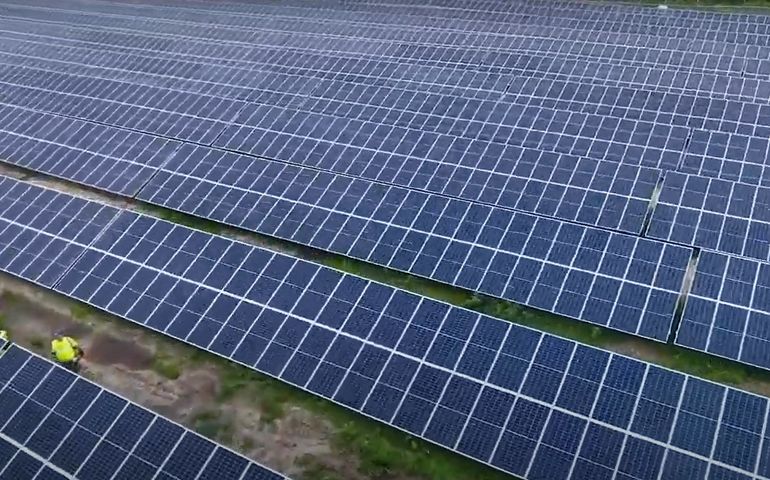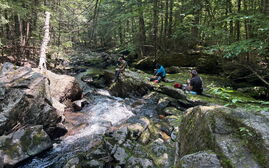Maine PUC issues second call for renewable energy credits for state portfolio
 File photo
The Maine Public Utilities Commission has issued a second round of procurement solicitations for the state's renewable energy portfolio.
File photo
The Maine Public Utilities Commission has issued a second round of procurement solicitations for the state's renewable energy portfolio.
The Maine Public Utilities Commission has issued a second request for solicitations from renewable energy providers to add to the state's renewable portfolio standards, part of the effort to reduce reliance on fossil fuels across the state.
Projects will be selected through a competitive process conducted by the commission and evaluated based on the expected value they would provide to the state's consumers and economy. The 17 renewable projects picked in the first round, last year, will reduce greenhouse gas emissions by approximately 500,000 tons per year, create hundreds of jobs and contribute millions of dollars to Maine's economy, the PUC said.
The procurement solicitations are part of a three-bill clean energy package passed by the Legislature in 2019 that looks to add a total of 375 megawatts of power through projects of less than 5 MW, for commercial, industrial and community use. Overall, the law aims to increase Maine’s Renewable Portfolio Standard from 40% to 80% by 2030, with a goal of 100% renewable energy by 2050.
The law requires that community-shared projects serve low- and moderate-income customers, and encourages development of landfill and brownfield projects.
Renewable energy developers chosen by the commission enter 20-year contracts to sell the energy with Central Maine Power or Versant Power, depending on their location in the state. A bidders' information session will be held Feb, 3, and initial proposals are due March 18.
"We were very pleased with the first-year prices for energy from the first procurement, which ranged between 2.9 to 4 cents per kWh," Commission Chairman Philip L. Bartlett said. "We are optimistic that the second round will be equally beneficial to the state of Maine."
Moving forward on climate, jobs
The procurement process was made possible because the Legislature in 2019 raised the net metering cap, allowing arrays of up to 5 MW — 5,000 KW — to sell or store excess energy. The previous net metering limit was 660 kilowatts.
Raising the cap is what makes renewable energy development viable for investors, developers and municipalities. The law aims to not only lower the state's dependence on fossil fuels to generate electricity, but is also expected to create 500 jobs as projects are developed, supporters said at the time
“This new law allows medium sized projects like schools and municipalities to get into the solar market and many larger solar companies are excited about the jobs it will create here in Maine,” state Sen. Dana Dow, R-Waldoboro, who sponsored the bill, said when it was signed in June 2019.
Gov. Janet Mills said the most recent solicitation put Maine on a trajectory to meet its targets for curbing greenhouse gas emissions, reducing the state's dependence on fossil fuels and development renewable energy resources in the state.
“As called for by Maine’s four-year climate action plan, 'Maine Won’t Wait,' I am committed to creating a flourishing clean energy sector in Maine to combat the effects of climate change on our state, strengthen our economy, and grow sustaining, good-paying jobs across Maine," she said in a news release.














0 Comments